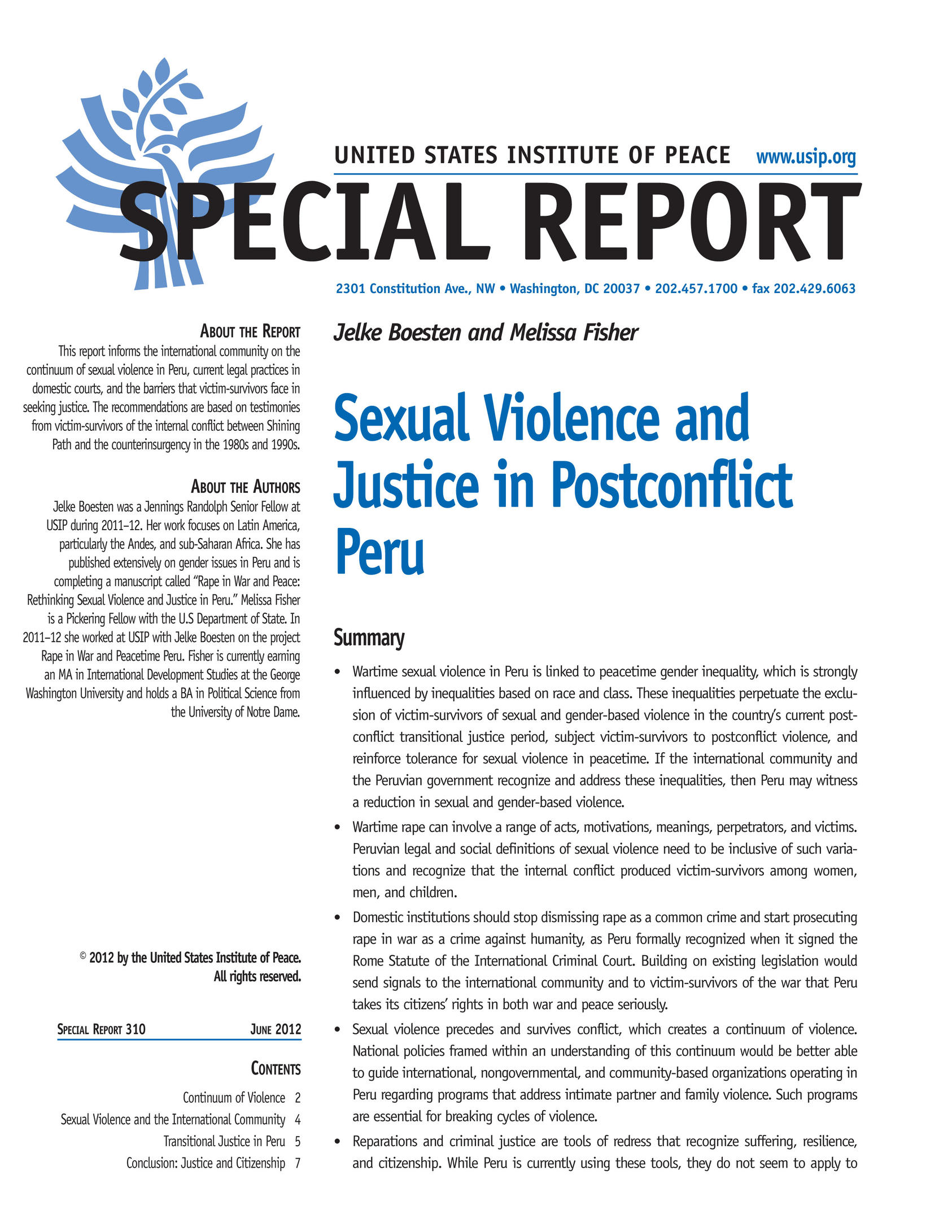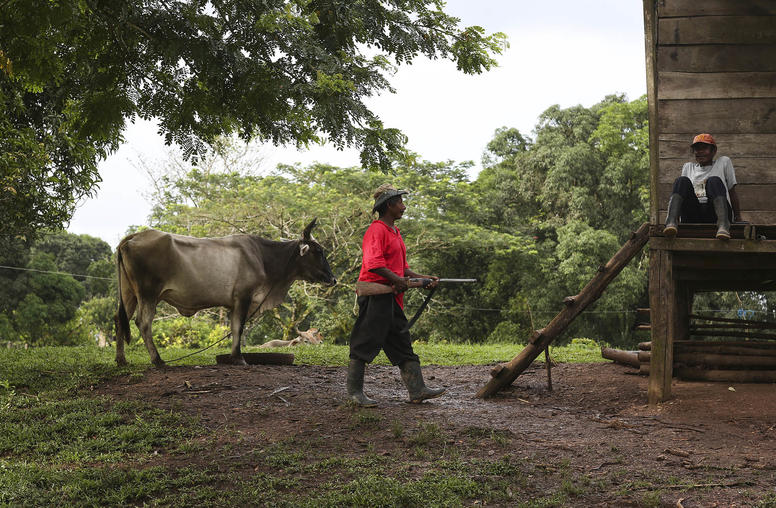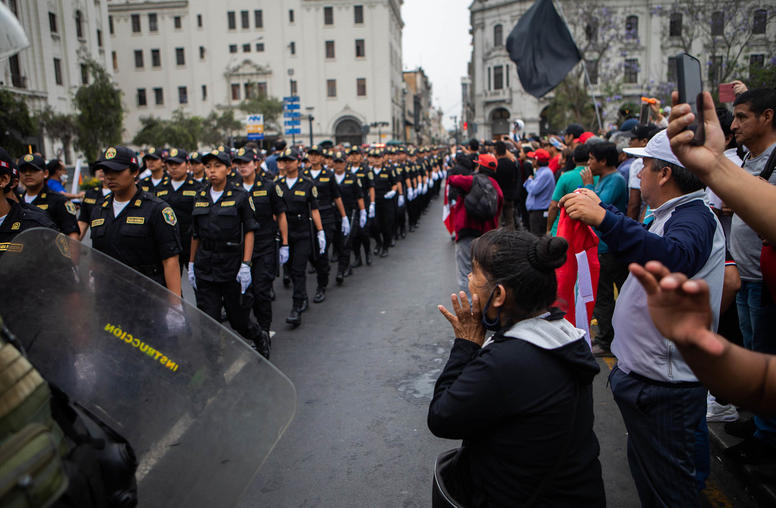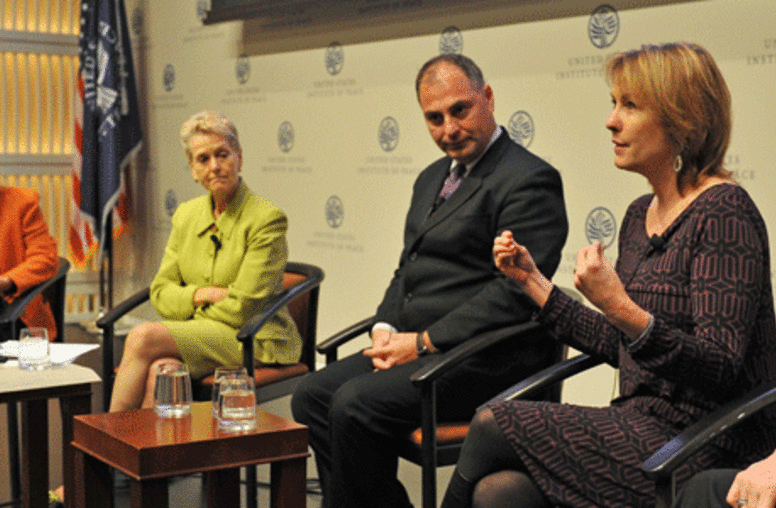Sexual Violence and Justice in Postconflict Peru
Wartime sexual violence is rooted in preconflict inequalities and also perpetuates peacetime violence, as the case of Peru shows. Peru can begin to break this cycle of violence by treating rape in war as a crime against humanity.

Summary
- Wartime sexual violence in Peru is linked to peacetime gender inequality, which is strongly influenced by inequalities based on race and class. These inequalities perpetuate the exclusion of victim-survivors of sexual and gender-based violence in the country’s current postconflict transitional justice period, subject victim-survivors to postconflict violence, and reinforce tolerance for sexual violence in peacetime. If the international community and the Peruvian government recognize and address these inequalities, then Peru may witness a reduction in sexual and gender-based violence.
- Wartime rape can involve a range of acts, motivations, meanings, perpetrators, and victims. Peruvian legal and social definitions of sexual violence need to be inclusive of such variations and recognize that the internal conflict produced victim-survivors among women, men, and children.
- Domestic institutions should stop dismissing rape as a common crime and start prosecuting rape in war as a crime against humanity, as Peru formally recognized when it signed the Rome Statute of the International Criminal Court. Building on existing legislation would send signals to the international community and to victim-survivors of the war that Peru takes its citizens’ rights in both war and peace seriously.
- Sexual violence precedes and survives conflict, which creates a continuum of violence. National policies framed within an understanding of this continuum would be better able to guide international, nongovernmental, and community-based organizations operating in Peru regarding programs that address intimate partner and family violence. Such programs are essential for breaking cycles of violence.
- Reparations and criminal justice are tools of redress that recognize suffering, resilience, and citizenship. While Peru is currently using these tools, they do not seem to apply to victim-survivors of sexual and gender-based violence. An inclusive politics of justice would break through this historical marginalization.
About the Report
This report informs the international community on the continuum of sexual violence in Peru, current legal practices in domestic courts, and the barriers that victim-survivors face in seeking justice. The recommendations are based on testimonies from victim-survivors of the internal conflict between Shining Path and the counterinsurgency in the 1980s and 1990s.
About the Authors
Jelke Boesten was a Jennings Randolph Senior Fellow at USIP during 2011–12. Her work focuses on Latin America, particularly the Andes, and sub-Saharan Africa. She has published extensively on gender issues in Peru and is completing a manuscript called “Rape in War and Peace: Rethinking Sexual Violence and Justice in Peru.” Melissa Fisher is a Pickering Fellow with the U.S Department of State. In 2011–12 she worked at USIP with Jelke Boesten on the project Rape in War and Peacetime Peru. Fisher is currently earning an MA in International Development Studies at the George Washington University and holds a BA in Political Science from the University of Notre Dame.


